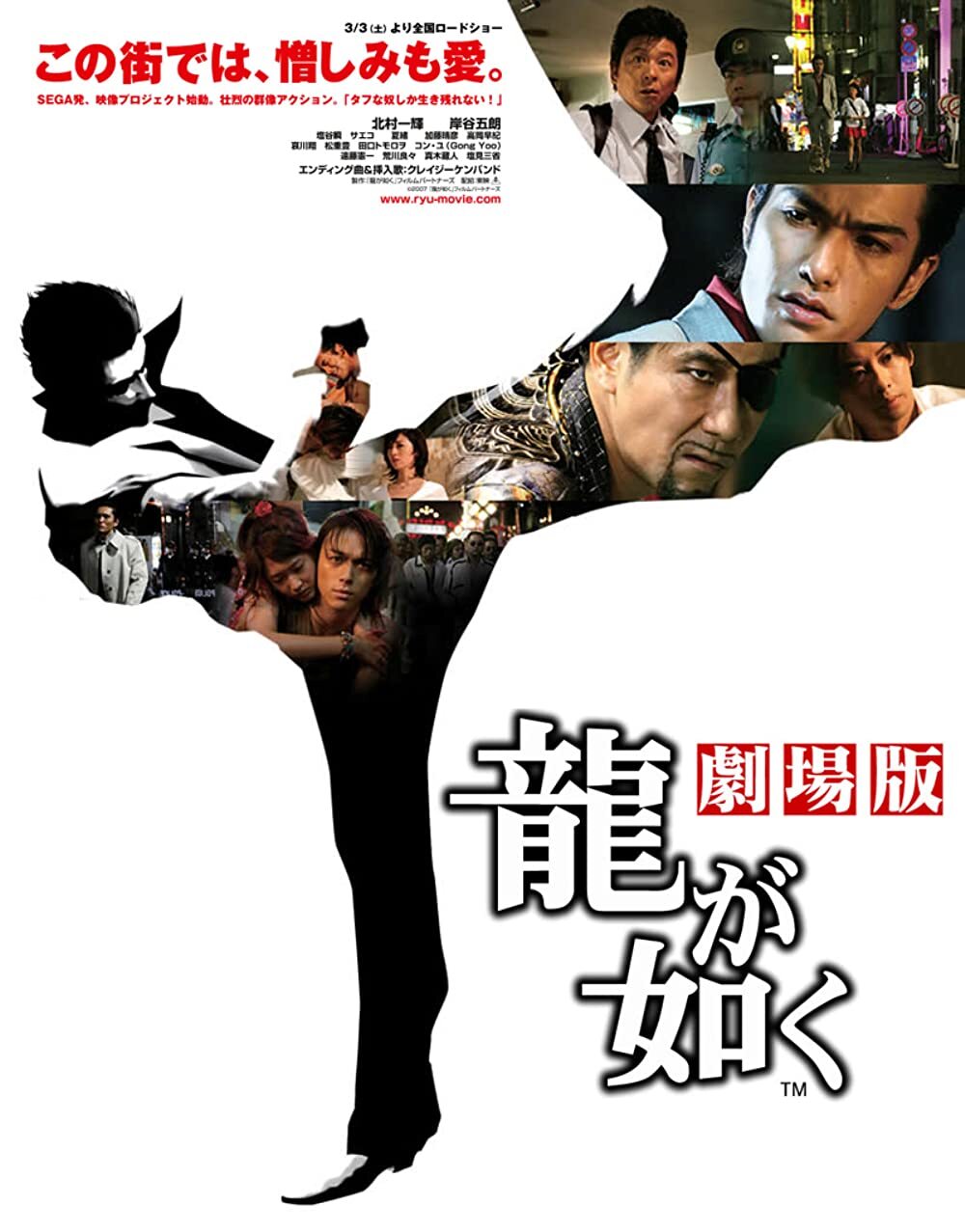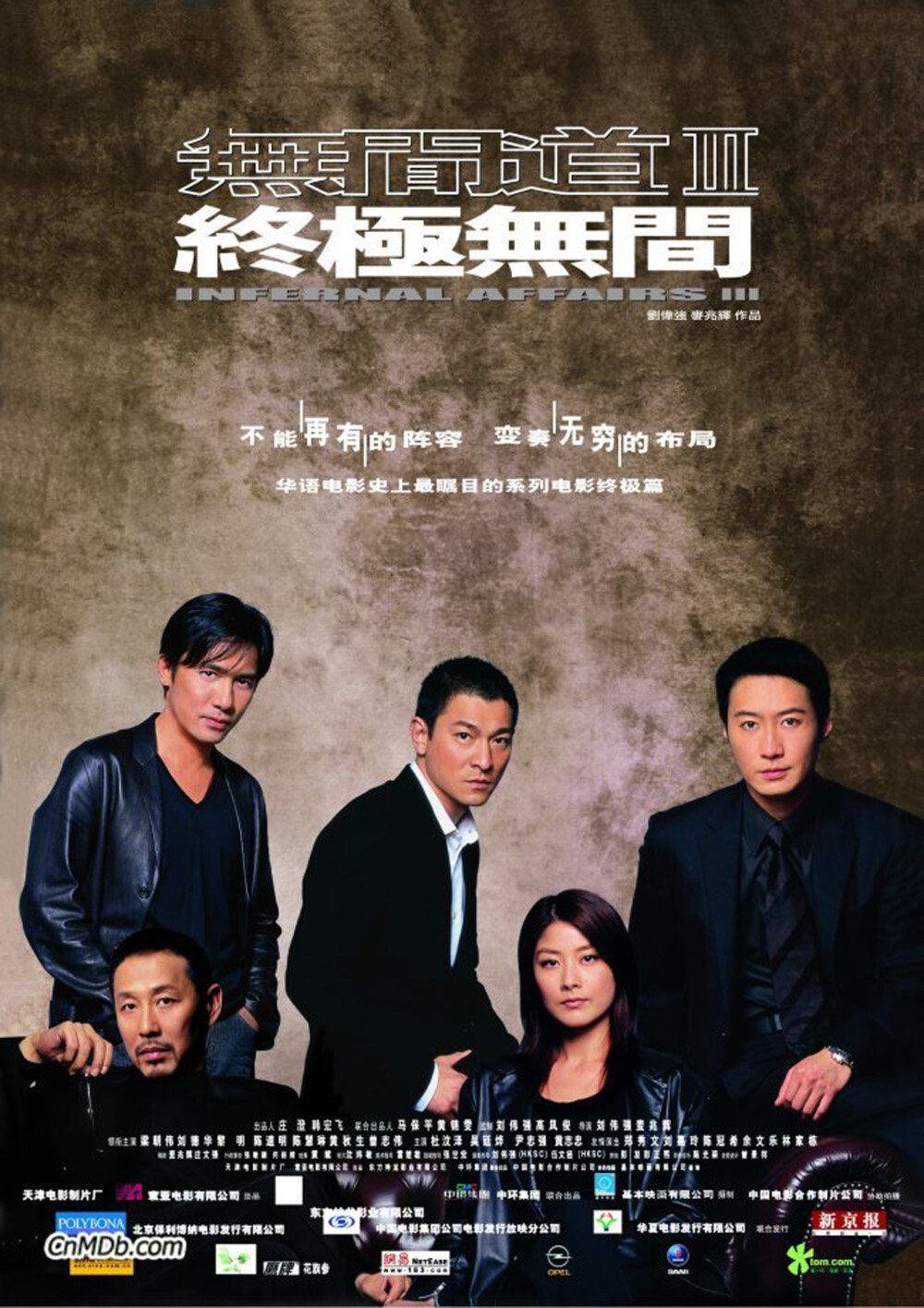-
Par kluseba le 22 Mars 2023 à 18:16

Wan Li Gui Tu, internationally known as Home Coming, is a Chinese military drama set in a non-specified country during the Arab Spring. It tells the story of two unarmed Chinese diplomats who attempt to save one hundred twenty-five isolated Chinese citizens from a region controlled by hostile rebel forces and bring them back home. The diplomats need to use courage, diplomacy and strategy to face different challenges and dangers.
On the positive side, the portrayal of the Arab Spring is quite realistic in this movie. The fact that no country, group or leader is specifically pointed out goes along with the film's promotion of compromises and intellect. The locations have been chosen with care, the costumes look quite realistic and the tense atmosphere is genuine as well. This survival drama has excellent pace from start to finish but also takes its time to develop its most important characters. The viewers will be rooting for their survival. The acting performances are decent to great throughout. The explosive special effects also stand out because they are employed realistically and avoid turning this film into a senseless action spectacle.
On the negative side, this film is obviously a propaganda movie like so many other contemporary Chinese films. After a period of intellectual freedom throughout the nineties and early years of the millennium, most movies from the past decade and counting try to portray Chinese people as particularly heroic citizens and their government as caring, reliable and strong. The message of this movie is very clear: no matter where a Chinese citizen lives, the government will protect said citizen from any foreign danger and bring this citizen back home by any means necessary. While this promise might sound almost romantic at first sight, such constant surveillance also has a justifiably creepy undertone for non-Chinese viewers like myself.
At the end of the day, Home Coming is a gripping military drama with profound characters, excellent locations and realistic special effects. On the other side, this movie has a strong propagandistic touch, attempting to praise the Chinese government as heroic, powerful and revolutionary. If you are willing to forgive those little hints at brainwashing, you are going to explore a very good genre movie that entertains from start to finish.
-
Par kluseba le 22 Mars 2023 à 18:11

Ryû ga gotoku: Gekijô-ban, internationally known as Like a Dragon, is an excellent action thriller inspired by the first entry in the internationally acclaimed video game franchise Yakuza. It's quite surprising that this excellent movie hasn't been received more favourably and that there are even plans to remake it entirely. As it is, this movie isn't only a pleasure to watch for fans of the franchise with its numerous hidden gems but also a blockbuster for regular fans of gangster movies.
This movie has been directed by prolific filmmaker Miike Takashi, responsible for genre masterpieces like Shinjuku Triad Society in 1995, Dead or Alive in 1999 and Ichi the Killer in 2001. His direct, fast and graphic approach suits this movie wonderfully and resumes an epic video game of roughly thirty hours in one hour and fifty minutes. Some iconic scenes from the video game might have been left out but one simply doesn't miss them in this brutal, energetic and quirky final product. Miike Takashi is the perfect director for this wonderful movie.
The acting performances are also surprisingly solid. Kitamura Kazuki is one of Japan's most prolific actors and has collaborated with Miike Takashi time and again. He incarnates charismatic protagonist Kiryu Kazuma splendidly. Kishitani Goro has also been starring in several excellent gangster films and he might deliver the best performance of his career while portraying crazy antagonist Majima Goro as he finds the perfect balance between this character's stylish antics and his psychopathic obsessions. Even the child actress who plays Sawamura Haruka who represents hope, innocence and purity in the video game series is absolutely credible here.
Another strength of this film are its locations. The video game series have been inspired by Shinjuku entertainment district Kabukicho and Miike Takashi's movie was actually shot on location. From this perspective, this movie feels even more realistic than the associated video game. Numerous locations from shiny skyscrapers over sinister back alleys to chaotic basement shops have been perfectly integrated into this film.
As for the story, this movie follows the first video game very closely. Objective observers might claim that this isn't very creative. However, those who are unfamiliar with the video game are in for a wild rise with several stunning twists and turns. As for those who are actually familiar with the video game, your anticipation will keep growing throughout the film as its finale comes around with one iconic scene after another. There are no unnecessary lengths to be found and once this turbulent ride is over, you simply want to take a deep breath, sip a tasty drink and start all over again.
At the end of the day, anyone who appreciates gangster movie should definitely watch Like a Dragon. If you are intrigued by this film, make sure to either discover the wonderful video game franchise from start to finish in chronological order or to watch some of Miike Takashi's greatest movies throughout his impressive career that has lasted for more than three decades now. Actually, combining both elements might be the best option for you as it will give you hours and hours of outstanding entertainment. Here's hope that this wonderful movie will finally be served justice and see an international re-release by a company like Arrow Media or Well Go USA.
-
Par kluseba le 13 Mars 2023 à 15:19

Anata no Ban Desu: Gekijoban, internationally known as Your Turn to Kill, is inspired by a drama series of the same title and presents a different timeline and set of events. This film tells the story of newlyweds Tezuka Nana and Tezuku Shota who invite numerous neighbours, friends and family members upon a small cruise ship to celebrate the event. Soon enough however, several passengers start to die under mysterious circumstances. Since nobody can leave the cruise ship, local police investigators and the newlywed couple start investigating before more passengers could die.
This movie offers a vibrant mixture of family drama, investigative thriller and situation comedy. This quirky combination is certainly rather creative but also leads to some bumpy, confusing and exaggerated transitions. This film certainly is an acquired taste to be appreciated by anyone who favours such courageous genre fusions while being dreaded by anyone looking for a coherent story from start to finish.
On the positive side, the film's plot comes around with a few surprises, the chosen settings on the cruise ship blend in very well and several acting performances are quite convincing while leading to a gripping finale.
However, this movie is also roughly twenty to thirty minutes too long and especially its middle section drags on for far too long. This film also struggles to introduce a multitude of characters that could have obviously been more developed in a regular series. Some of the movie's situation comedy feels distracting, exaggerated and stiff as it's at times overused and doesn't blend in very well with the film's overall serious undertone.
If you are intrigued by this movie, make sure to check out Japanese movie The After-Dinner Mysteries that was released almost exactly a decade earlier. Both movies are very similar in their characters, settings and stories to a point that I appreciate both on the same level. If fluid genre combinations intrigue you, then you might even have two very good films on your watchlist now.
-
Par kluseba le 7 Février 2023 à 16:39

Revolutionary cop thriller Infernal Affairs and its clever prequel Infernal Affairs II have profoundly changed Hongkong cinema two decades ago. The scriptwriters, directors and cast decided once more to capitalize on the success of the two predecessors to present a nervously twisted third film that is prequel and sequel at the same time. As a prequel, it gives us more information about the two moles and their challenging everyday lives. As a sequel, this film shows how the surviving mole tries to cut loose ends by eliminating all other moles while he gets caught up in his own web of lies as the internal affairs department is investigating him while his wife plans on divorcing him.
This movie's most significant flaw is that it doesn't seem to know what it wants to be and ends up being too many things at the same time. The sudden changes from past to present prevent this film from having any flow whatsoever. This film feels dull, exhausting and overtly long.
To be fair, a few segments are rather interesting. For instance, the relationship between the mole who has infiltrated the triads and his resilient psychologist convinces with brilliant acting and slow burn romance that becomes quite palpable towards the climax. This movie also has a satisfactory climax as the mole working in the police department decides to see his plans to cut loose ends through by any means necessary.
Many characters who have carried the two predecessors are only side notes in this film. Tony Leung's character is reduced to a closed-minded, tight-lipped and childishly romantic sidekick. Eric Tseng's wonderful character is shown as conflicted mobster who has lost most of its charisma. Most remarkably, Andy Lau's character who was always cool, prepared and quick in the predecessors loses touch with reality and runs amok which seems to be completely out of character. The filmmakers tried to introduced quite a few surprising changes but they feel pulled out of thin air and are simply not believable.
At the end of the day, avoid yourself the trouble to sit through Infernal Affairs III that overall lacks too much in quality to convince from start to finish. Discover this franchise with the excellent second instalment and continue with the groundbreaking first film but ignore this third part entirely. This episodic psychological drama feels like a dizzying rollercoaster ride that overstays its welcome.
-
Par kluseba le 7 Février 2023 à 16:35

Capitalizing on the surprising success of groundbreaking intellectual cop drama Infernal Affairs was both a logical step by capitalistic standards and a risky affair by artistic perspectives. It's a great relief however that the scriptwriters, directors and cast have managed to release a movie that can be considered of equal quality if compared to its successful predecessor.
Infernal Affairs II might be a bland title but is actually a gripping prequel taking place at three different moments in time. It starts all the way back in 1991 when the triads place a mole in the police department while the police department succeeds in infiltrating a mole among the triads. The leader of the triads gets assassinated and one of his sons takes care of the business. Four years later in 1995, the new leader of the triads sets a deadly trap for his four strongest competitors. The mole in the police department has quickly climbed the career ladder which has lead to both envy and recognition. The mole in the triads has been spending time in prison and his relationship with his girlfriend is on a rapid downward spiral after she secretly underwent an abortion. Two years later in 1997, the mole in the police department has become a respected inspector while the mole among the triads has become a full-fledged criminal. The boss of the triads is put under pressure by an impending trial involving a former collaborator as a key witness who was believed to be dead but who actually started a new life with a wife and a child in Thailand.
This movie adds much depth to the different characters from the first movie. It helps us understand their motivations much better and shows how the characters have become who they are in the first film. Many characters here are going through significant changes as this film is even closer to a drama than a cop thriller than the first instalment.
Interestingly, this film however also features more poignant action sequences than its predecessor. The key scene here is the confrontation between the leader of the triads and his former collaborator as these antagonists are not only facing each other directly but have also kidnapped family members of their respective enemies. The final thirty minutes of this movie are as iconic and intense as the first film's poignant conclusion.
Interestingly, younger actors have been chosen to play the two moles as star actors Andy Lau and Tony Leung are only shown in a few flashbacks. This risky approach pays off splendidly as it makes this film much more realistic and introduces fresh new actors to the franchise. The few returning actresses and actors however also deliver the goods as Anthony Wong impresses as pitiless superintendent and Eric Tseng shows how a blindly loyal drug dealer eventually became a ruthless leader of the triads.
This movie's most obvious flaw is that everyone who has watched the first movie already knows who is going to survive and who is going to die in this film. This is why my urgent recommendation to anyone who is new to the franchise is to watch the second film first, then proceed with the first film and entirely skip the unnecessary third instalment.
At the end of the day, Infernal Affairs II is one of the few cases when a second instalment in a franchise equals the quality of the first movie. This film might be less respected internationally but it's certainly worth your attention. The detailed, intellectual and profound plot, the wonderful characters going through changes and the excellent cast combining experienced veterans and promising youngsters are this movie's most noteworthy qualities. As mentioned earlier, this film should be your introduction and start to the franchise that revolutionized Hongkong cinema two decades ago.
 Suivre le flux RSS des articles de cette rubrique
Suivre le flux RSS des articles de cette rubrique













